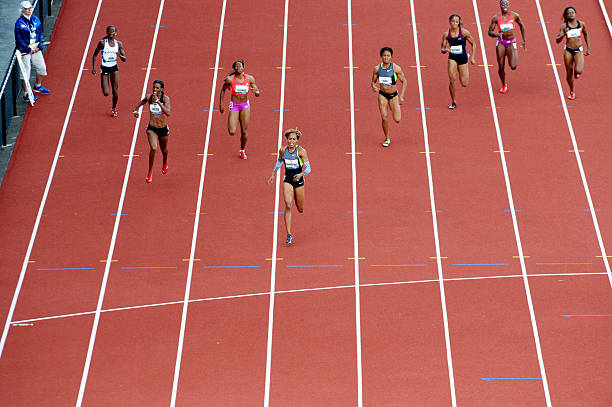The Fight is Not Over: Court of Arbitration for Sports Upholds Discriminatory Ban

New York (May 1, 2019) – Today, the Court of Arbitration for Sport (CAS) upheld the 2018 IAAF regulation that requires some female runners with naturally high testosterone—including Olympic and World Champion Caster Semenya—to only be eligible to compete against other women if they agree to medically alter their bodies. This ruling applies to female athletes racing in track events from 400 meters up to the mile, and will be followed by the International Association of Athletics Federations (IAAF).
“Forcing athletes to undergo medically unnecessary interventions in order to participate in the sport they dedicate their lives to is cruel, and a violation of their human rights,” said Hudson Taylor, Executive Director of Athlete Ally. “This fight is not over. We continue to stand in solidarity with Caster Semenya and all athletes affected by this discriminatory ruling.”
Previously, the IAAF ruled some female runners with naturally high testosterone levels will have to race against men or change events, unless they take medication to suppress their natural hormone levels. CAS found that prior similar IAAF regulations were discriminatory and ruled in 2015 that they could not be justified given the available scientific evidence. The IAAF ruling was met by global outrage by athletes including Semenya, and by an open letter to the IAAF by Athlete Ally and the Women’s Sports Foundation signed by over 60 athletes from around the world including Billie Jean King, Abby Wambach and Megan Rapinoe. We called out the regulation as discriminatory, harmful and based upon flawed data which misrepresents testosterone’s effect on athletic performance and we continue to voice our grave concern that discrimination such as this undermines the spirit of sport, and violates the 4th fundamental principle of the Olympic Charter, to which the IAAF adheres:
The practice of sport is a human right. Every individual must have the possibility of practising sport, without discrimination of any kind and in the Olympic spirit, which requires mutual understanding with a spirit of friendship, solidarity and fair play.
“Today’s CAS ruling is deeply disappointing, discriminatory and contradictory to their 2015 ruling,” said Deborah Antoine, CEO of the Women’s Sports Foundation. “We will continue to speak out and demand change to this discriminatory policy.”
This CAS ruling, which allows the IAAF regulation to stand, is a tremendous step backwards for inclusion in sports. However, Athlete Ally and the Women’s Sports Foundation remain committed to fighting for athletes like Caster to be able to compete exactly as they are. We will not rest until all track athletes are able to run without the burden of discrimination.